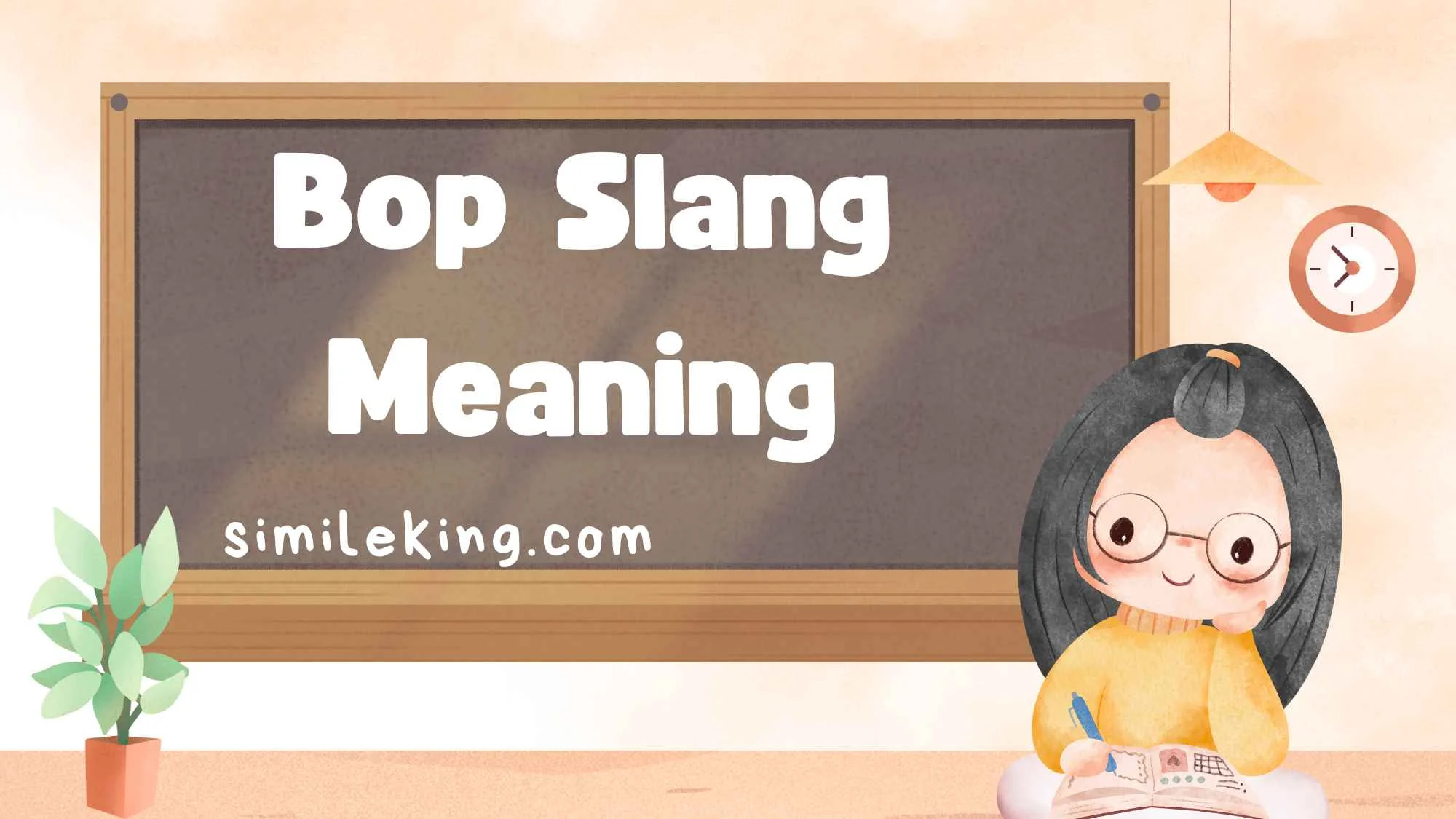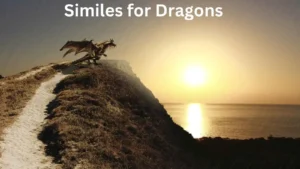Language never stands still—it evolves, adapts, and reshapes itself with every generation. Slang, in particular, reflects the cultural pulse of society:
what young people are saying online, in music, and in daily conversations.
One of the most fascinating and versatile slang terms that has stood the test of time is “bop.”
In 2025, “bop” continues to thrive in texting, music, and pop culture. But depending on the context, its meaning can shift dramatically.
Sometimes it refers to a great song, other times to dancing, and in some circles, it can even mean traveling quickly, hitting someone, or enjoying a fun event.
This article is the most comprehensive 2025 guide to “bop slang meaning.”
You’ll learn not just its definitions, but also how to use it politely, professionally, or casually.
We’ll dive into cultural influences, explore how tone changes its meaning, and provide 10 strong usage examples you can apply in real life.
By the end, you’ll have a complete command of this word that puts you ahead of others.
What Does “Bop” Mean in Slang?
In slang, “bop” is a multi-layered word. While its root meaning dates back decades, 2025 usage has given it new life in different spaces like TikTok, streaming culture, and Gen Z texting habits.
Here are the core meanings of bop in 2025:
- A Catchy Song – If a track is fun, rhythmic, and irresistible, it’s a “bop.” Example: “That new Ariana Grande track is a bop.”
- To Dance – Used to describe moving energetically to music. Example: “We were bopping all night at the party.”
- To Hit or Punch (Playful/Slangy) – Sometimes used as a verb for striking lightly. Example: “Don’t make me bop you.”
- To Travel Quickly / Walk Casually – Used in casual texting. Example: “I’ll bop over to your place later.”
- A Fun Event or Vibe – Used to describe something enjoyable. Example: “That festival was such a bop.”
In essence, “bop” has no single definition—it’s a chameleon word, changing based on tone and context.
Origins of the Word “Bop”
The word originated in the 1940s jazz era with bebop, a style of fast, improvisational music. By the 1960s–70s, “bop” shifted into slang for dancing. In the late 2010s, TikTok and streaming culture cemented “bop” as a universal term for a good song or vibe.
In 2025, the word is now multi-generational. Older listeners may still connect it with dancing, while younger audiences primarily use it for songs, events, or casual movement.
Why “Bop” Is Still Relevant in 2025
Unlike many slang terms that fade out quickly, “bop” has longevity because:
- It’s short, punchy, and flexible.
- It has musical roots, making it timeless.
- It’s reinforced by TikTok trends, where users constantly caption music videos with “this is such a bop.”
- It fits across formal and casual tones, depending on context.
For example:
- A teen might say: “This remix is a total bop.”
- A professional might say in a light work setting: “That playlist really bops during focus hours.”
Different Contexts of “Bop” Slang (2025 Update)
1. Bop in Music
The most dominant meaning in 2025. Music streaming platforms like Spotify and Apple Music regularly use “bop” in playlists such as “Today’s Bops” or “Summer Bops.” It signals fun, upbeat tracks.
2. Bop in Texting and Social Media
In chats, “bop” can mean coming over quickly or heading somewhere casually.
- Example: “I’ll bop to the mall after work.”
3. Bop in Parties and Events
Describes enjoyable gatherings.
- Example: “Last night’s concert was a bop.”
4. Bop as Playful Aggression
Used jokingly among friends.
- Example: “Keep talking and I’ll bop you.”
5. Bop in Professional Settings
Rare, but possible in relaxed office culture when referring to upbeat songs or team events.
- Example: “That playlist during the brainstorming session was a bop—kept everyone’s energy up.”
How Tone Changes the Meaning of “Bop”
Tone is everything when it comes to slang. Consider:
- Casual tone: “This song is such a bop” → light, fun, everyday use.
- Professional tone: “That campaign video really bops with the younger audience” → still slangy, but used strategically.
- Playful tone: “Don’t make me bop you” → humorous, not literal.
- Affectionate tone: “We were bopping around the city like kids” → nostalgic, warm.
Alternatives to “Bop” (Polite, Professional, and Casual)
Sometimes, “bop” may not fit the setting. Here are alternatives depending on tone:
- Polite / Formal: “melody,” “composition,” “tune,” “uplifting track.”
- Professional: “energetic,” “resonates well,” “catchy.”
- Casual: “jam,” “banger,” “fire,” “slap.”
Example Replacements:
- Instead of “That’s a bop,” you could say:
- Polite: “That’s a lovely tune.”
- Professional: “That track resonates with the campaign audience.”
- Casual: “That song’s a banger.”
10 Examples of “Bop” in Real Conversations
- Music: “Her new single is such a bop—I’ve had it on repeat all week.”
- Party: “The wedding playlist was a bop; everyone danced the whole night.”
- Travel: “I’ll bop over after dinner to drop it off.”
- Dance: “We were bopping in the kitchen like it was a club.”
- Playful Threat: “Say that again and I’ll bop you on the head.”
- Event: “That comedy show was a bop, honestly worth every minute.”
- Workplace: “That brainstorming session bopped with creative energy.”
- Romantic: “We bopped around town like teenagers in love.”
- TikTok: “This dance challenge is a bop—everyone’s doing it.”
- Gaming: “That soundtrack is a bop; it makes the gameplay so much better.”
Choosing the Best Alternative Based on Situation
- In Music Reviews → Use “bop,” “jam,” or “banger.”
- In Business / Marketing → Use “resonates,” “energizing,” or “engaging.”
- In Polite Conversation → Use “lovely tune,” “melodic piece,” or “delightful track.”
- In Friend Texts → Stick with “bop,” “slap,” or “fire.”
The choice depends on audience, tone, and context.
The Future of “Bop” in 2025 and Beyond
Based on current cultural shifts:
- “Bop” will continue dominating music slang.
- In professional spaces, marketers are already adopting it to connect with Gen Z and Gen Alpha.
- Expect hybrid slang like “micro-bop” (short viral tracks) or “visual bop” (aesthetic videos that feel catchy).
Slang like “bop” isn’t going anywhere—it’s only evolving into broader lifestyle meanings.
Conclusion
“Bop” is one of those rare slang terms that has successfully crossed generations, cultures, and contexts. In 2025, it’s more versatile than ever: a song, a vibe, a dance, a quick trip, or even a playful gesture.
If you’re texting casually, writing a music review, or even trying to spice up professional marketing, knowing when and how to use “bop” can make your communication sharper, trendier, and more relatable.
The beauty of slang like “bop” is its ability to stay simple yet flexible—making it a timeless cultural word.





